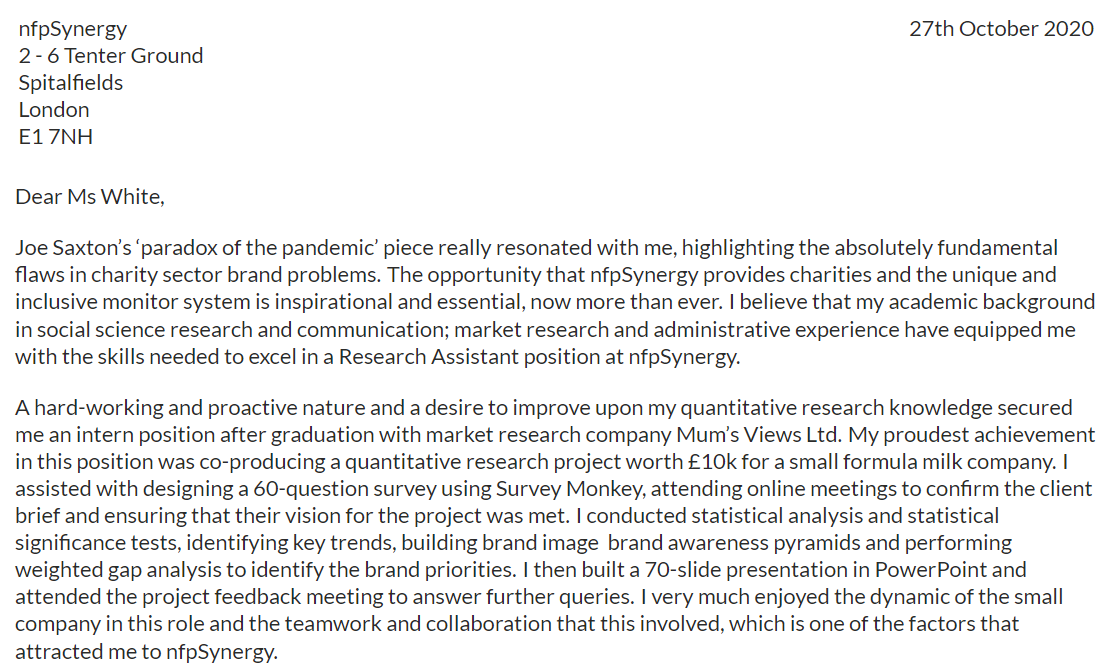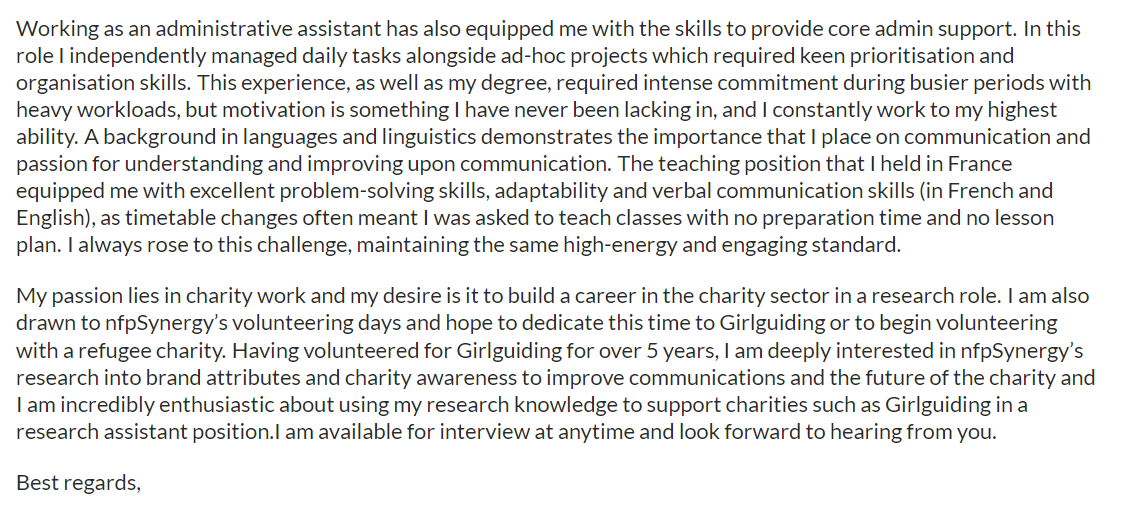The coronavirus pandemic has changed the first stages of the selection process for hiring new employees. In October 2020, nfpSynergy opened 2 vacancies for a Research Assistant position which closed 3 weeks later. As part of the hiring process, names, university/universities attended, and applicant nationality (where included) on CV’s and cover letters were anonymized to ensure the process was as inclusive as possible. We received 650 applications for the roles, with the possibility of only around 10 getting an interview. Unfortunately, due to the number of applications we were unable to give personalized feedback to all the unsuccessful candidates. Previously, a position like this would have around 100 applicants, which shows how competitive the employment market is at the moment. The latest update from the ONS shows that the unemployment rate has increased to an estimate of 4.9% compared to a 3.8% in 2019. With more than 370,000 people made redundant during the months of August to October, it is especially important to make the best first impression possible when putting in a job application. We decided to put together feedback and tips from the nfpSynergy team members who screened the applications and chose the suitable candidates.
We hope that the advice below will help your CV stand out in the crowd, whatever job or sector you’re applying to:
Spelling and grammar
Seeing an application with a clear and concise writing style always stands out when sifting through hundreds of them. Long, convoluted sentences and spelling mistakes make it difficult to digest your application and to take it seriously. Always ask someone you trust to proofread your application before you submit it.
Formatting
Pay special attention to the way you have been asked to format your application. This shows that you can follow instructions, have good attention to detail and have closely read the job description. For example, we asked applicants to submit their CV and cover letter as one document and address it to Berni White. If you did this, it always made a good first impression.
Do your research
It showed when an applicant had taken the time to do some background reading about us. We do not expect you to be an expert, or to do hours of background reading; we just need to see that your interest in our work is genuine. We found it especially impressive when a candidate mentioned a specific piece of our work, a blog post, a particular monitor, or a current issue that was particularly pressing for charities. Sending the same cover letter out to lots of companies is not going to work.
Put yourself in the interviewers' shoes: which information are they looking for? What is your expertise and what is not.If you studied orworked in a field unrelated to the role you are applying for, think about which terms the interviewers might be able to understand to help them evaluate what you have done, and if the skills are transferrable.
Provide clear examples
It is no use just saying you would be an amazing fit for the job and that your values align with ours.Anyone can say this. You need to show how this is the case. We need to see how you have developed and applied the skills we are looking for in your previous experiences. We wanted to see your quantitative and qualitative skills and/or your knowledge and experience of the charity sector in practice. Keeping a variant of the STAR technique in mind helps in this respect. First, think of an example of when you have met the requirement in the job description. Provide any necessary background information (Situation), tell us what you had to do (Task), tell us how you did it, including any obstacles you had to overcome (Action), and what the outcome was (Result).
Keep it short
Cover letters should be no more than one page, and CVs no more than 2. There were a few applications which were a little too extensive, which, in the end was exhausting to read. You also need to be concise and straight to the point. It is a skill in itself to be able to summarise key points concisely. With the number of applications companies are receiving at the moment, lengthy cover letters are not advisable. If we have 650 applications, and each application takes 1 minute to be reviewed, that is still 10 hours of shortlisting.
Talk about yourself
An idea of who the person applying is is nice to have. Let us know about your hobbies, interests and attitudes.All these things that can help give character and personality to an application. Display passion and interest in the charity sector, giving examples of some great voluntary/work experiences in past if you have them. This is as important, if not more so, than writing about academic qualifications in the cover letter (which are already specified in the CV).
If you're still studying, tell us when you'd be available to start (i.e., when you'll be graduating, or if you're taking a sabbatical). It is useful to know so that we can evaluate if you'd be free to take up a full-time position.
Below, we’ve included a new team member’s successful cover letter, as well as helpful links about CV improvement, job hunting during lockdown, and a short video about job seeking in challenging times. We want to wish everyone the best of luck with job hunting at the moment. If you are struggling, try and build your volunteering experience or find free or affordable online courses in your area of interest.
Here's a blog we published back in 2012 encouraging a different approach to CV's and cover letters.
Here's a video about job seeking in challenging times.



